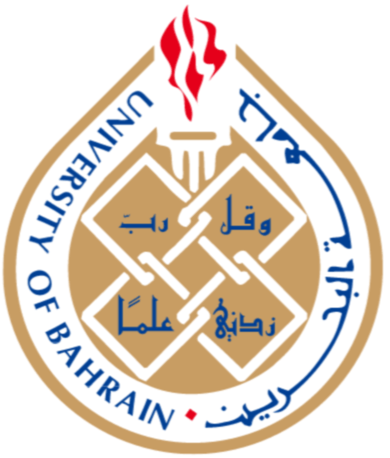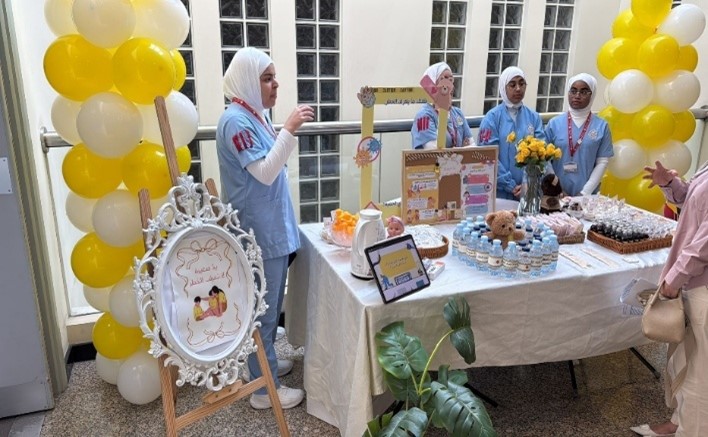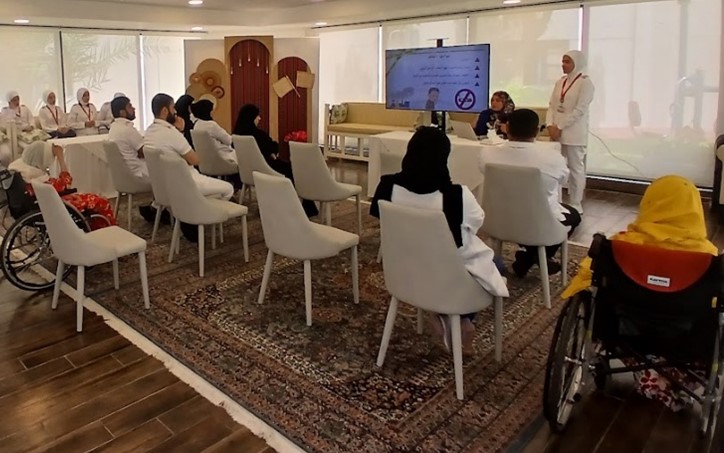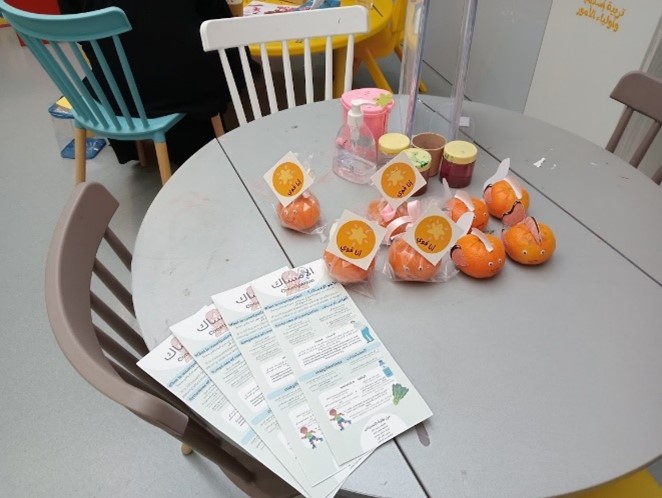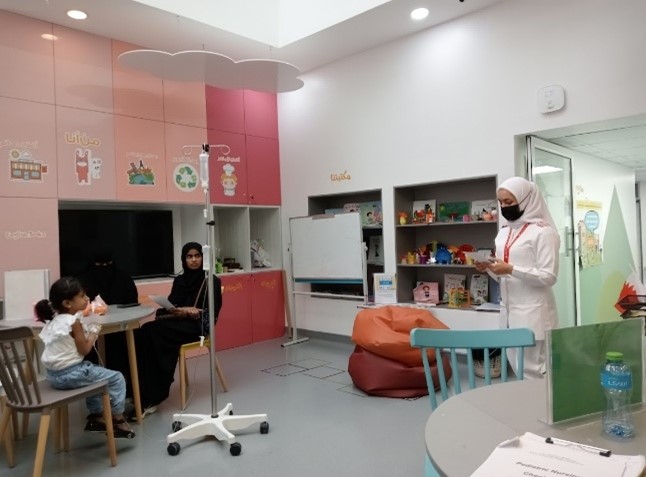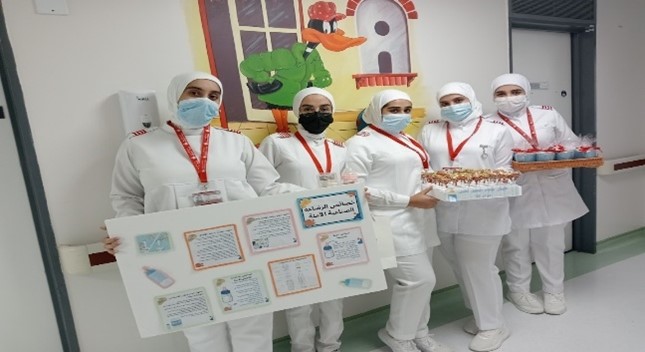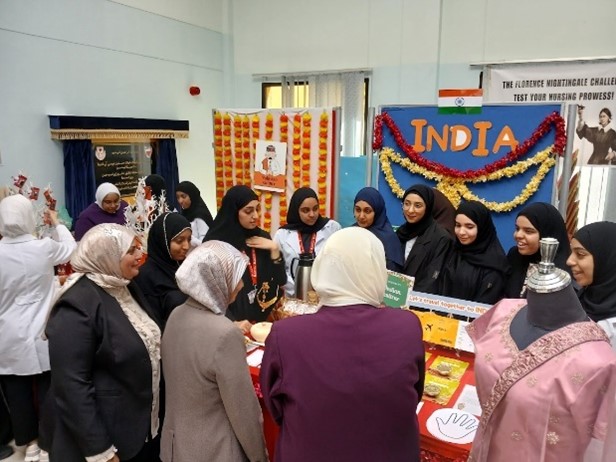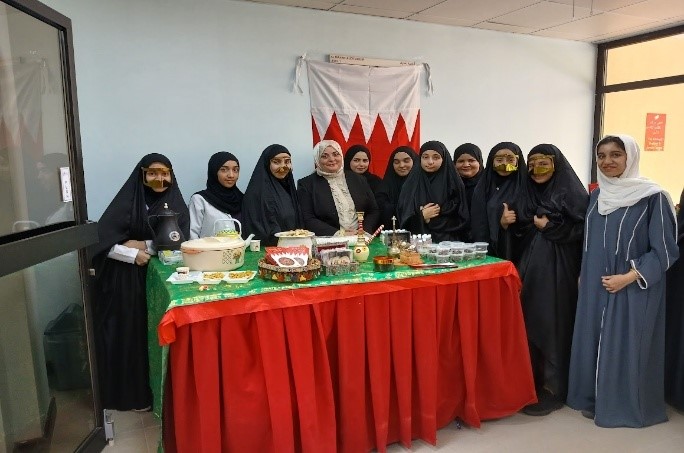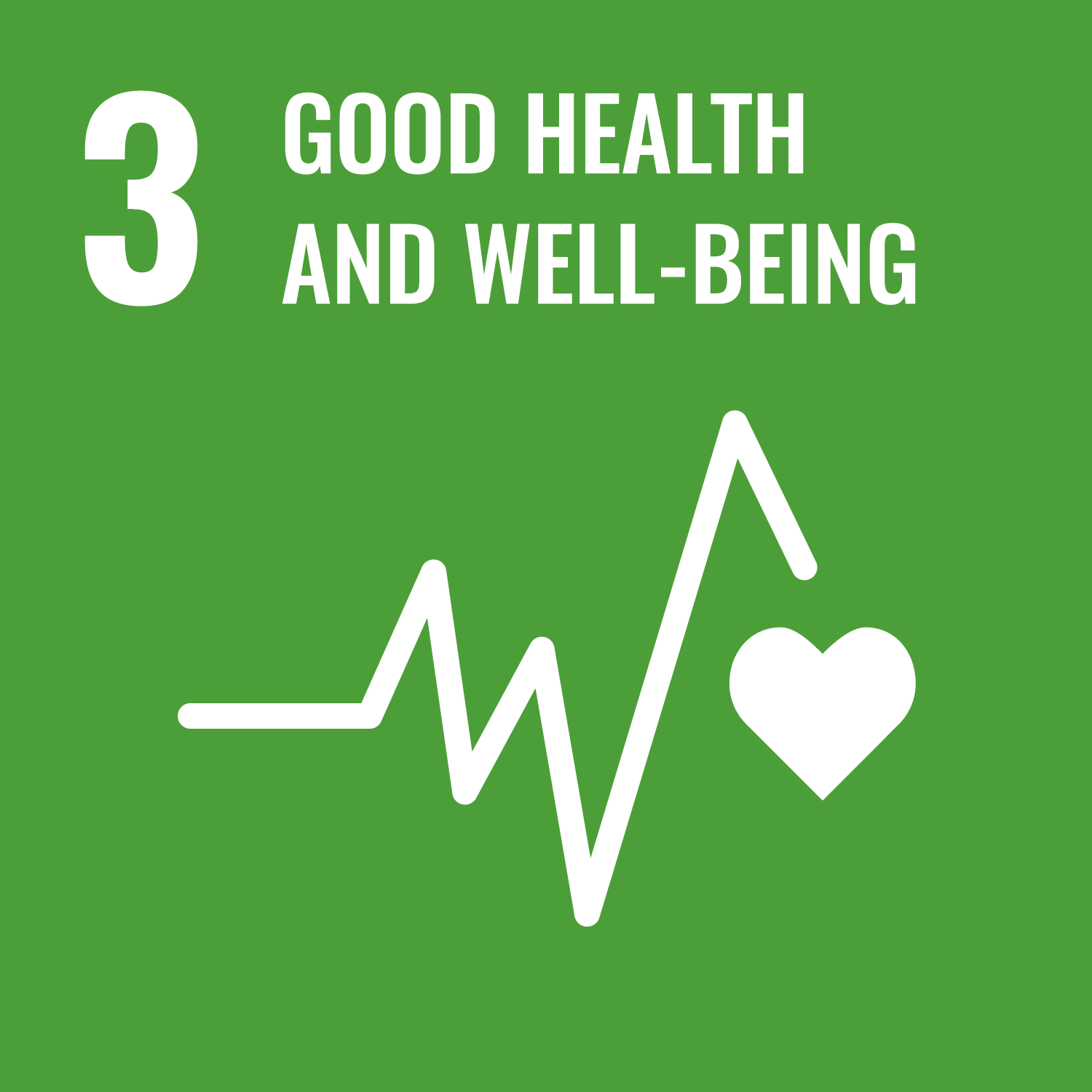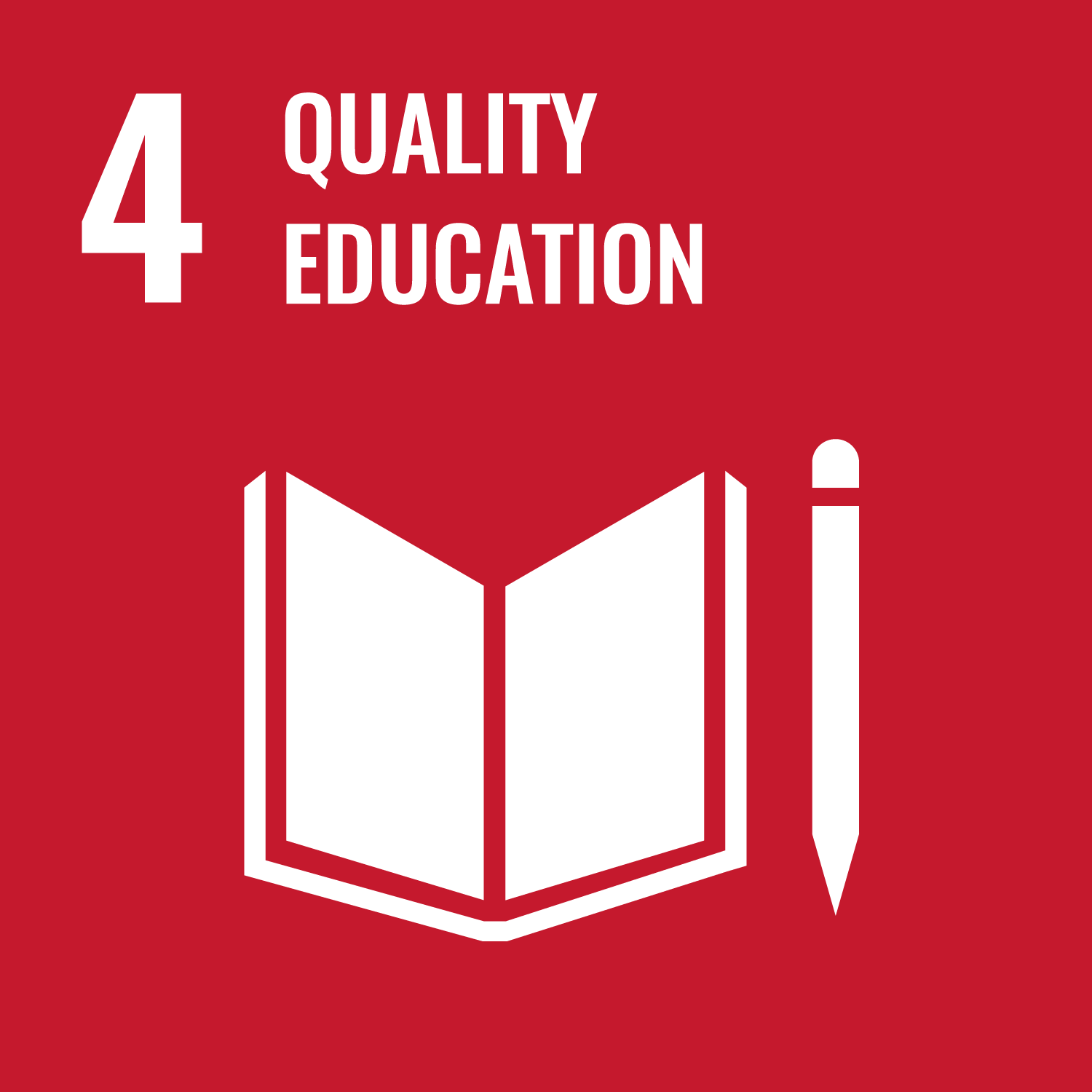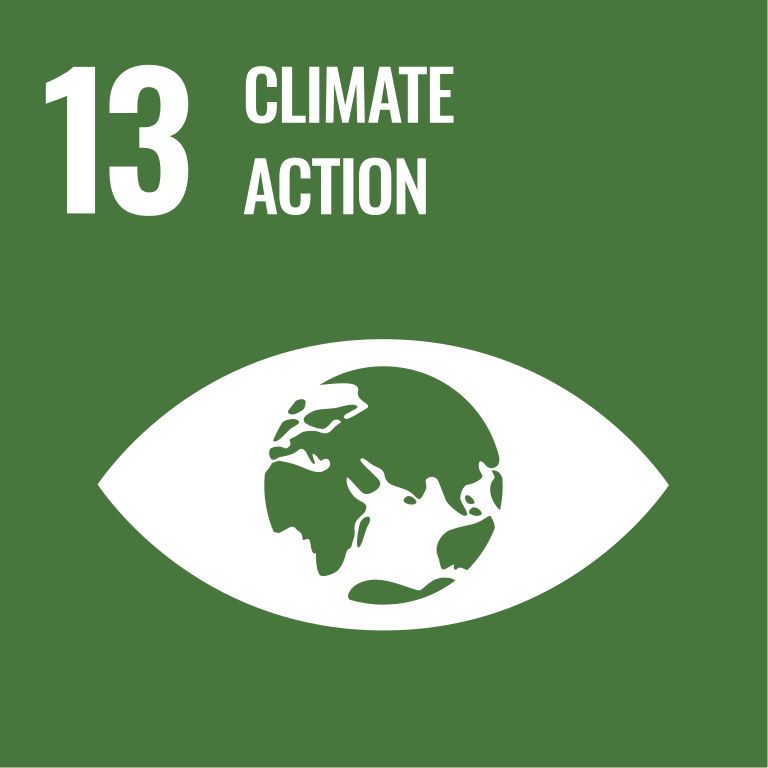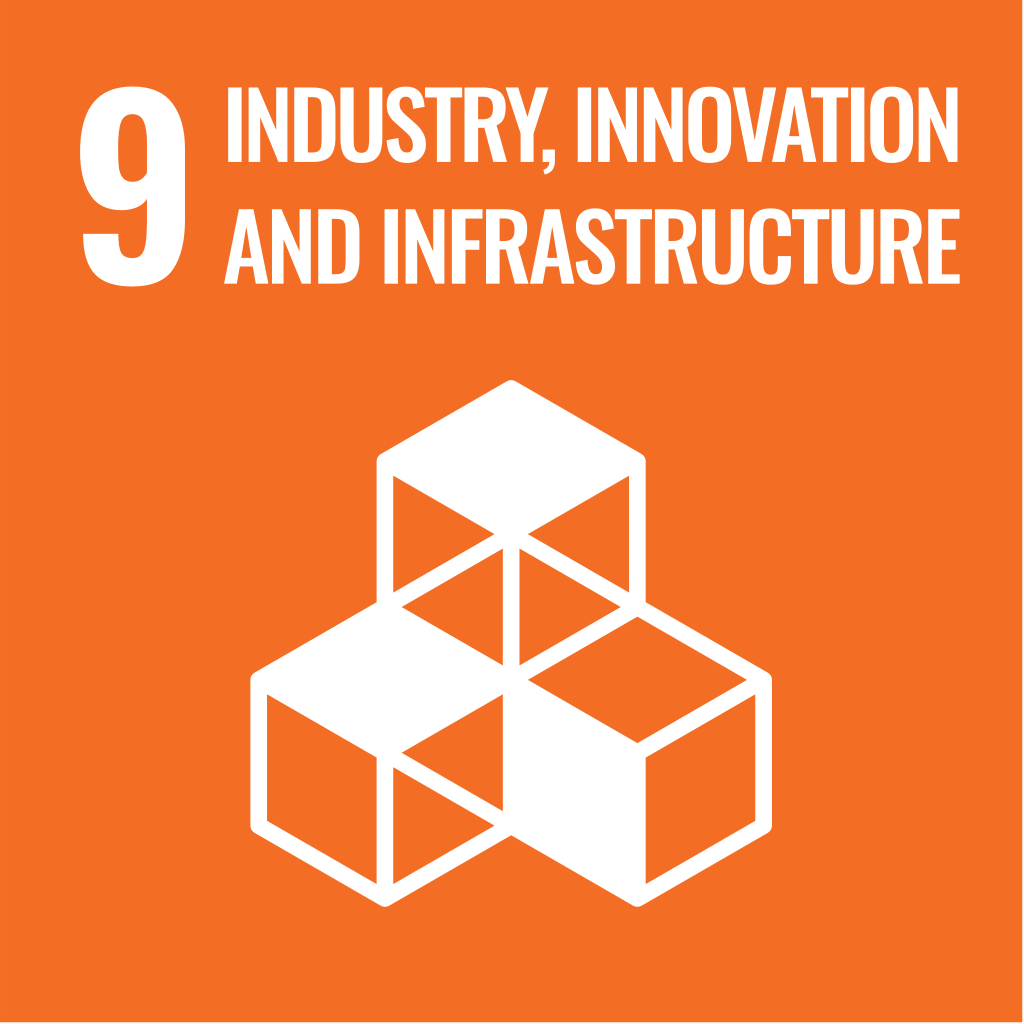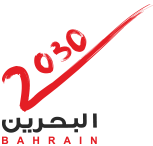Teaching and Learning
SDG 3: Focus Areas
3.2.1 Proportion of graduates in health professions
Sustainability in Healthcare Education at the University of Bahrain
Overview
The University of Bahrain is committed to advancing sustainable healthcare education by preparing qualified graduates in health professions. Through its Clinical Simulation Laboratory for Nursing Sciences and Diagnostic Radiologic Technology Lab, the university provides high-quality, hands-on learning experiences that enhance students’ clinical competencies and readiness for the healthcare workforce.
Impact
These initiatives increase the proportion of graduates in health-related fields, contributing to a stronger national healthcare system and supporting Bahrain’s workforce development goals. By integrating innovative technologies and simulation-based training, the University ensures that nursing and radiologic technology graduates are well-equipped to deliver safe, effective, and patient-centered care directly advancing SDG Indicator 3.c.1 & 3.2.1, which emphasizes the growth of a skilled and sustainable health workforce essential for improving health outcomes and well-being for all.
Evidence:
- Number of graduates: 5754
- Number of graduates in health professions: 680
Relevant SDG 3 Targets and Indicators:
Public Health Program
Overview:
The Public Health curriculum at the University of Bahrain is closely aligned with SDG 3, promoting disease prevention, health equity, and sustainable healthcare systems. Courses cover key areas such as epidemiology, health policy, environmental health, and global health management.
Impact:
By preparing graduates to address issues like communicable and non-communicable diseases, health financing, and workforce development, the program supports universal health coverage and public health preparedness.
Relevant SDG 3 Targets and Indicators:
Family and Community Health Nursing
Overview:
Through the Family and Community Health Nursing Care course, nursing students engage in outreach activities and awareness campaigns at primary healthcare centers and community events.
Impact:
Students participate in initiatives such as Pink October, World Mental Health Day, World Patient Safety Day, World Food Day, Movember, World Antibiotic Awareness Week, and World Diabetes Day. These experiences build their communication and leadership skills while raising public awareness on disease prevention, healthy lifestyles, and health equity, advancing SDG Targets 3.3
Relevant SDG 3 Targets and Indicators:
Care of Older Adults
Overview:
As part of the Care of Older Adults course, nursing students promote healthy aging through community engagement and education sessions in welfare and day care centers.
Impact:
Students conduct interactive workshops on preventive health, first aid, and nutrition, empowering older adults to take charge of their well-being. The initiative enhances students’ empathy and understanding of geriatric needs, supporting SDG Target 3.4 on reducing premature mortality and improving quality of life for all ages.
Relevant SDG 3 Targets and Indicators:
Antenatal Care (Midwifery Curriculum)
Overview:
Midwifery students provide educational sessions for expectant mothers as part of their Antenatal Care training, emphasizing maternal health and informed decision-making.
Impact:
Mothers receive guidance on nutrition, hygiene, exercise, immunization, and pregnancy preparedness through engaging and accessible learning tools. This initiative supports SDG Targets 3.1 and 3.2, focusing on reducing maternal and child mortality and ensuring safe pregnancies.
Relevant SDG 3 Targets and Indicators:
Mother’s Health Classes
Overview:
During the Pediatric Nursing course, students conduct interactive classes for mothers in pediatric wards, fostering knowledge exchange and parental support.
Impact:
Sessions address breastfeeding, weaning, accident prevention, and management of common childhood illnesses. These classes strengthen maternal confidence and preventive care practices, contributing to SDG Targets 3.2 and 3.4 by improving child health and family well-being.
Relevant SDG 3 Targets and Indicators:
Cultural Care Awareness
Overview:
To promote culturally competent care, nursing students organize an annual Transcultural Care Exhibition at the College of Health and Sport Sciences.
Impact:
The exhibition highlights diverse cultural beliefs and practices related to childbirth, chronic illness, and end-of-life care. It equips future healthcare professionals with cultural sensitivity and adaptability—key for delivering equitable, respectful healthcare. This initiative aligns with SDG Target 3.c, which emphasizes strengthening the health workforce and inclusive care practices.
Relevant SDG 3 Targets and Indicators:
